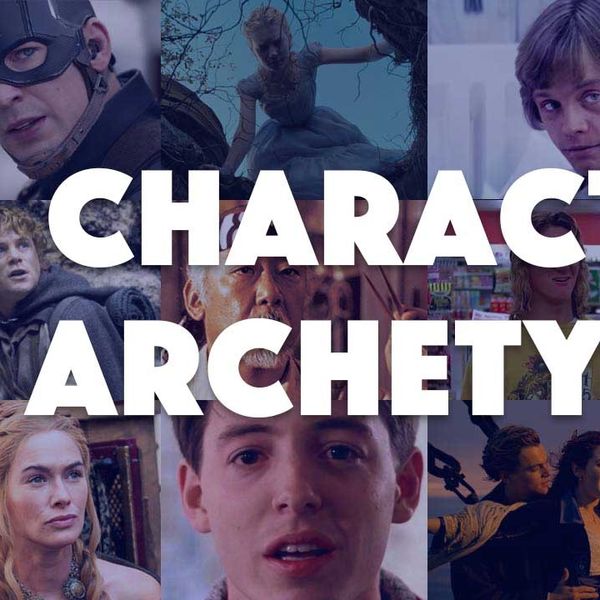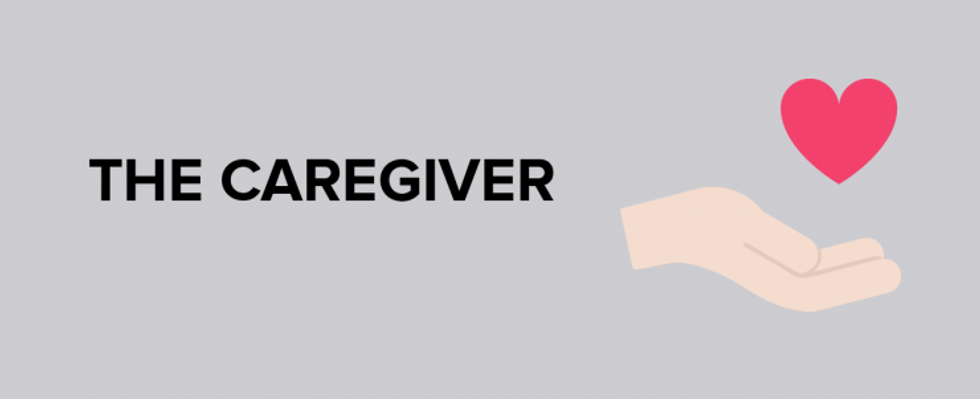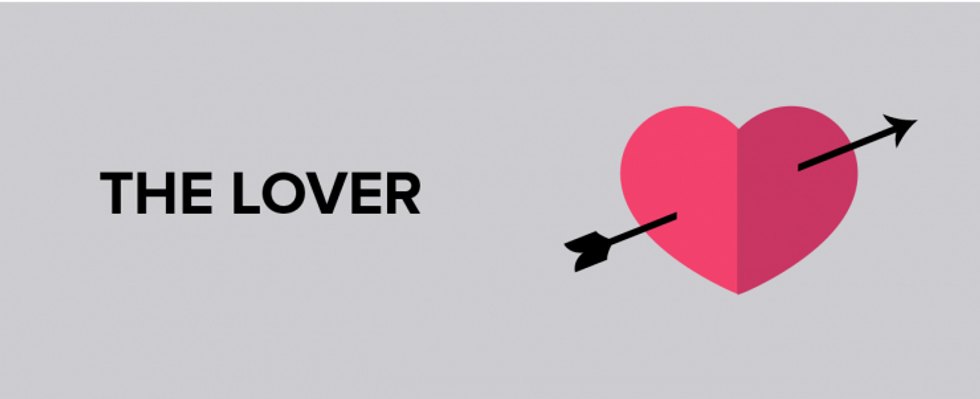
I don’t know about you, but when it comes time to develop characters, I get a little stressed out. To truly know your character, you need to be able to answer lots of questions about them. It’s not just backstory, but also their strengths, weaknesses, and what motivates them within the story.
The answers to these questions can be complex. But luckily there are lots of tools and models you can use to base your characters on. We call these models “archetypes.”
Today we’re going to go over the twelve character archetypes and show you how they can inform the creation of your characters. We’ll also give you examples of character archetypes in modern film and television.
So let’s dive into character!

Where do Character Archetypes come from?
You’ve written some great character descriptions and great character names, but how do you develop a great character? We place a lot of stock in things like Joseph Campbell and Carl Jung. Theorists who broke down humanity and story throughout history. According to Wikipedia, Jungian character archetypes refer to “unclear underlying forms or the archetypes-as-such from which emerge images and motifs such as the mother, the child, the trickster, and the flood among others. History, culture and personal context shape these manifest representations thereby giving them their specific content.”
I think to think of them as the blank forms we imbue with the ideas we have about characters and characterization.
Basically, they’re broad-stroke headings that refer to the kinds of characters in stories or screenplays. I love using these molds to help me learn about expected outcomes or tropes. But also I like to lean into certain qualities presented to format parts of the story I’m working on telling. I think they are useful tools to help inspire and breath life into the people on your pages.
There are 12 character archetypes in Carl Jung’s world. Let’s go over each of them and learn how these molds can help you format your story and character’s journey.
The 12 Character Archetypes (with examples)

1. The Warrior
Better with a sword and a speech, the warrior is usually the person with the plan. A traditional hero in every sense of the word, they’re there to rally the troops and take them into battle. Or to rob a casino. Or out of Egypt. Or across No Man’s Land to save troops on the other side.
Strengths of the Warrior
- Physical and/or mental prowess
- Confident
- Collected
- Ready for anything.
Weaknesses of the Warrior
- Egotistical
- Underestimates opponents
- Can be overconfident
The Warrior’s Motivation:
Someone has to save the day. Why not me?
Character archetype examples:
- Captain America
- Wonder Woman
- Danny Ocean
- Shaft

2. The Child
Ever think the world was one way and then get a dose of harsh reality? That’s the story of the Child. They’re young, naive, and need to learn the hard way.
Strengths of the Child
- Imaginative
- Trusting
- Hopeful
Weaknesses of the Child
- Weak in physicality or power
- Naive to the world
- Easily taken advantage of
The Child’s Motivation:
To learn, obtain happiness, and to find truth
Character archetype examples:
- Gordie from Stand by Me
- Scout from To Kill A Mockingbird
- Alice from Alice in Wonderland
 ‘Alice in Wonderland’ (2010)
‘Alice in Wonderland’ (2010)
Credit: IMDB

3. The Orphan
The orphan has no idea their worth until someone shows up and tells them. They’re usually anointed as the savior or protagonist of the story. They live a normal life until their circumstances thrust them into the spotlight.
Strengths of the Orphan
- They’re the chosen one, so they command respect
- They’re survivors
- They have empathy for the commoners
Weaknesses of the Orphan
- They’re driven by what others think of them
- No self-confidence
- Too eager to please
The Orphan’s Motivation:
They want to be accepted and to connect with other people. they want to be understood.
Character archetype examples:
- Harry Potter
- Luke Skywalker
- Frodo

4. The Creator
What’s it like to create something from nothing? This character needs to create something palpable or tangible in their world. They’ll make any sacrifice necessary to achieve something grander than the world they have now.
Strengths of the Creator
- Inexhaustible drive
- Creative genius
- Vision
Weaknesses of the Creator
- Inability to communicate a vision
- Alienating perfectionism
- Work above everyone else
The Creator’s Motivation:
The lasting impression of whatever they build. Legacy above all else.
Character archetype examples:
- Willy Wonka
- Daniel Plainview
- Carl Casper from Chef

5. The Caregiver
Selfless acts are rare in real life and even rarer in film and television. The caregiver character archetype lives their entire journey trying to help others at all costs. They care about friends, family, or all of the above more than anything else. You can rely on them.
Strengths of the Caregiver
- Big heart
- Selfless acts
- Generous
Weaknesses of the Caregiver
- Easily deceived
- One track mind
- Value other’s survival over their own
The Caregiver’s Motivation:
Protect those they love at all costs. They live to serve.
Character archetype examples:
- Samwise Gamgee
- Mrs. Weasley
- Beverly Goldberg
 Wendi McLendon-Covey as Beverly Goldberg in ‘The Goldbergs’
Wendi McLendon-Covey as Beverly Goldberg in ‘The Goldbergs’
Credit: IMDB

6. The Mentor
We’ve said this before, it’s hard to succeed in Hollywood without a mentor. The same goes for archetypes. Mentors or sages are wise teachers. They can have magic or logic or both.
Strengths of the Mentor
- Wisdom about the world
- Calming presence
- Great listener
Weaknesses of the Mentor
- Inability to solve their own problems
- Predictions can go wrong
- Learned from dark mistakes
The Mentor’s Motivation:
To teach the next generation to pick up the gauntlet.
Character archetype examples:
- Mr. Miyagi
- John Keating from Dead Poets Society
- Albus Dumbledore
- Mary Poppins

7. The Joker
This is the class clown or the stoner. The person just trying to get by in life and comic relief. They can be a cautionary tale or just there for the laughs.
Strengths of the Joker
- Everyone likes them
- They’re fun to be around
- Can have a deep soul
Weaknesses of the Joker
- Unreliable in times of need
- Usually in it for themselves
- A constant distraction
The Joker’s Motivation:
What will make my life easier and what will make me happy?
Character archetype examples:
- Spicoli from Fast Times at Ridgemont High
- Timon and Pumba
- Megan from Bridesmaids

8. The Magician
The search for enlightenment can take some people a lifetime. The difference between this person and the mentor is that the Magician has an agenda they want everyone to follow.
Strengths of the Magician
- Knowledge
- Strategy
- Historical understanding
Weaknesses of the Magician
- Hubris
- Anger if they don’t get their way
- Sometimes war-like
The Magician’s Motivation:
They want power and organization. they see chaos in the world and know how to solve the puzzle.
Character archetype examples:
- Thanos
- Sherlock Holmes
- Saruman in Lord of the Rings

9. The Ruler
Take me to your leader. This king or queen runs the country or corporation. They’re the person you follow and the one who gives the orders. Hopefully, they’re good at it.
Strengths of the Ruler
- Power
- Communication
- Leadership skills
Weaknesses of the Ruler
- Control at all costs
- Paranoia at plots against them
The Ruler’s Motivation:
Keep the peace and keep order in society by maintaining their power and getting more power.
Character archetype examples:
- Cersei Lannister
- Miranda Priestly from The Devil Wears Prada
- King Arthur
 Lena Headey as Cersei Lannister in ‘Game of Thrones’
Lena Headey as Cersei Lannister in ‘Game of Thrones’
Credit: HBO

10. The Rebel
Life’s not fair, and the rebel is sick of it. They won’t settle for the average day, not when they think they deserve more. Rebels like people but that doesn’t mean they’re the first choice to lead. Still, people follow someone who wants to shake the world up.

11. The Lover
Love will keep us together and keep the Lover going. They lead with their heart, which they wear on their sleeve. They’re selfless, and even though fully devoted to the one they adore, can sometimes neglect their own health and safety.
Strengths of the Lover
- Devoted to another
- Passionate about the object of their affection
- Open with their feelings
Weaknesses of the Lover
- Willing to die for another
- Can lose their own personality while pleasing another
The Lover’s Motivation:
To give everything they’ve got to another person. To make any relationship as strong as it can be.
Character archetype examples:
- Romeo and Juliet
- Jack and Rose
- Jaime Lannister

12. The Seducer
Some call them a femme fatale or homme fatale for a man. These are beautiful people using their looks and charm to take control of every situation. They’re conniving and value only what they want. And nothing will stop them.
Strengths of the Seducer
- Charismatic
- Beauty
- Smooth talker
Weaknesses of the Seducer
- No morals
- Controlling
- No loyalty
The Seducer’s Motivation:
To run the show. They want power and control at all costs.
Character archetype examples:
- Cleopatra
- Tony Stark
- Villanelle from Killing Eve
Character Archetype Mash-ups
You may be reading this list and thinking that some of our character examples fit into multiple archetypes. You’re totally right. The best characters are developed thinking of multiple personality traits. We’re not just one archetype, that would make us boring. The more dimensions you give a character, the more real they’ll feel.
Also, most characters start as one archetype and then morph into others. Captain America begins as Steve Rogers, a puny guy who is the child, given super soldier serum, and becomes the warrior.
Anakin Skywalker begins Star Wars as a child, but toward the end, he becomes a warrior for the dark side.
Look at characters like Villanelle on Killing Eve. She’s a seducer, a warrior, and even a child in some ways.
As you can see, character archetypes flow naturally into one another. The best storytellers mash different archetypes together and then take you on a journey from your character’s traditional classification and allow them to grow into other models on this list.
So what are some popular character archetype mash-ups?
What’s Next? Develop Your Character’s Arc!
Well, I hope you and your understanding of character archetypes has expanded. Now it’s time to take a look at our character arc post, so you combine them for a winning story. Also, take a look at our internal and external conflict post for ideas of the kinds of situations where we can see your characters develop.
And don’t forget about the six emotional arcs that you can use to help your screenwriting as well. These kinds of stories span film and television. It’s important to think about the types of changes and how they’ll carry over a movie, an episode, a season, and a series.
Like and share if this helped, and if you have questions, post them in the comments.
I can’t wait to read what you write next…
Author: Jason Hellerman
This article comes from No Film School and can be read on the original site.
